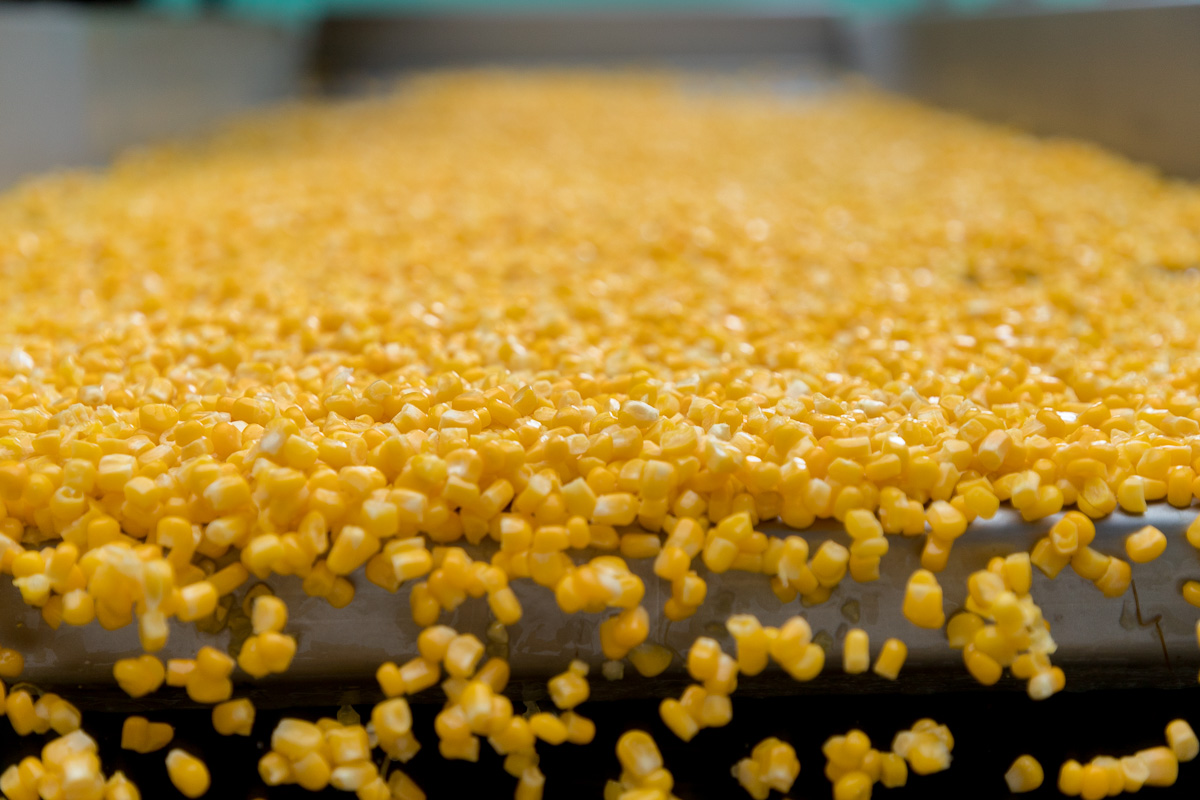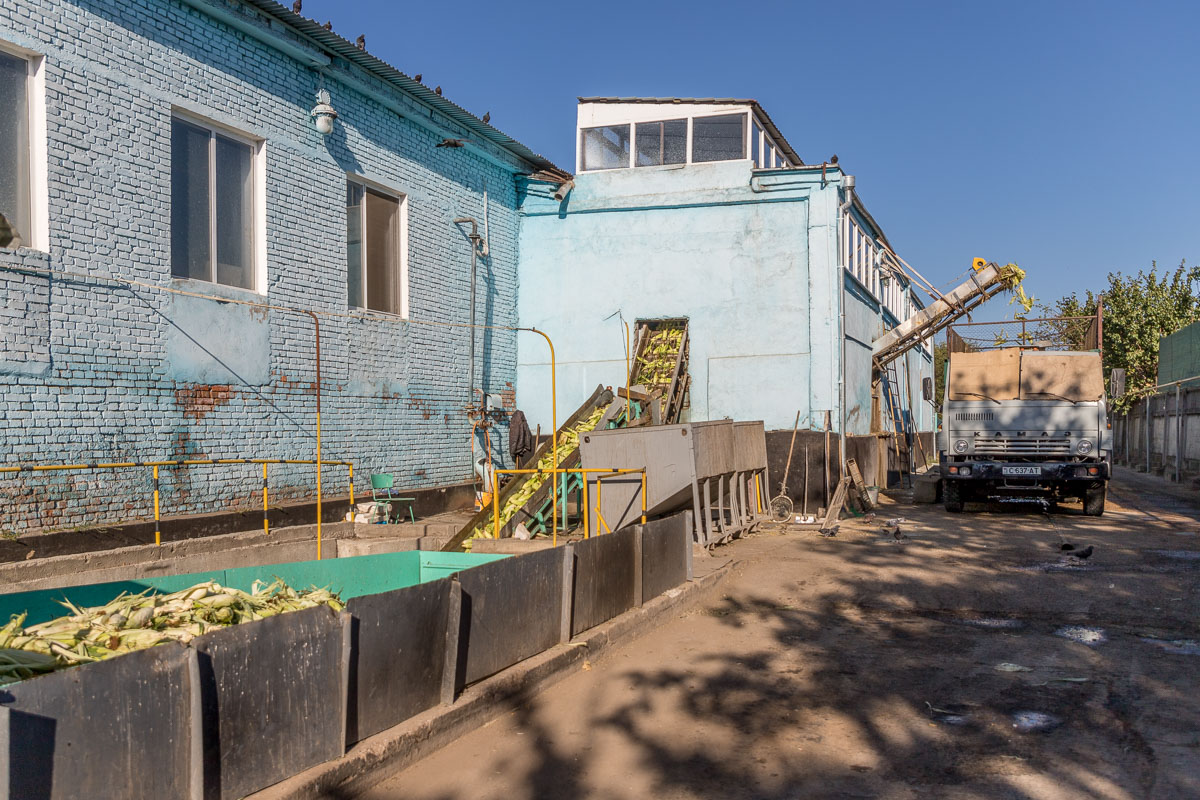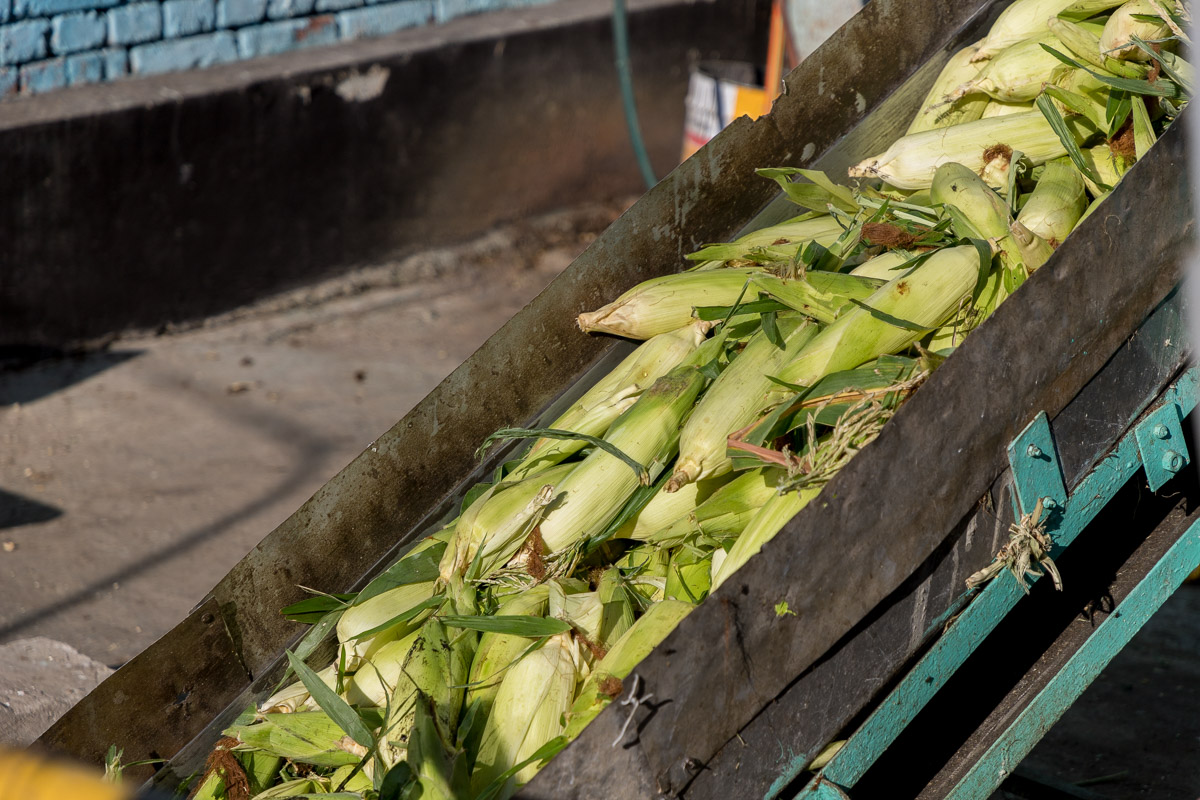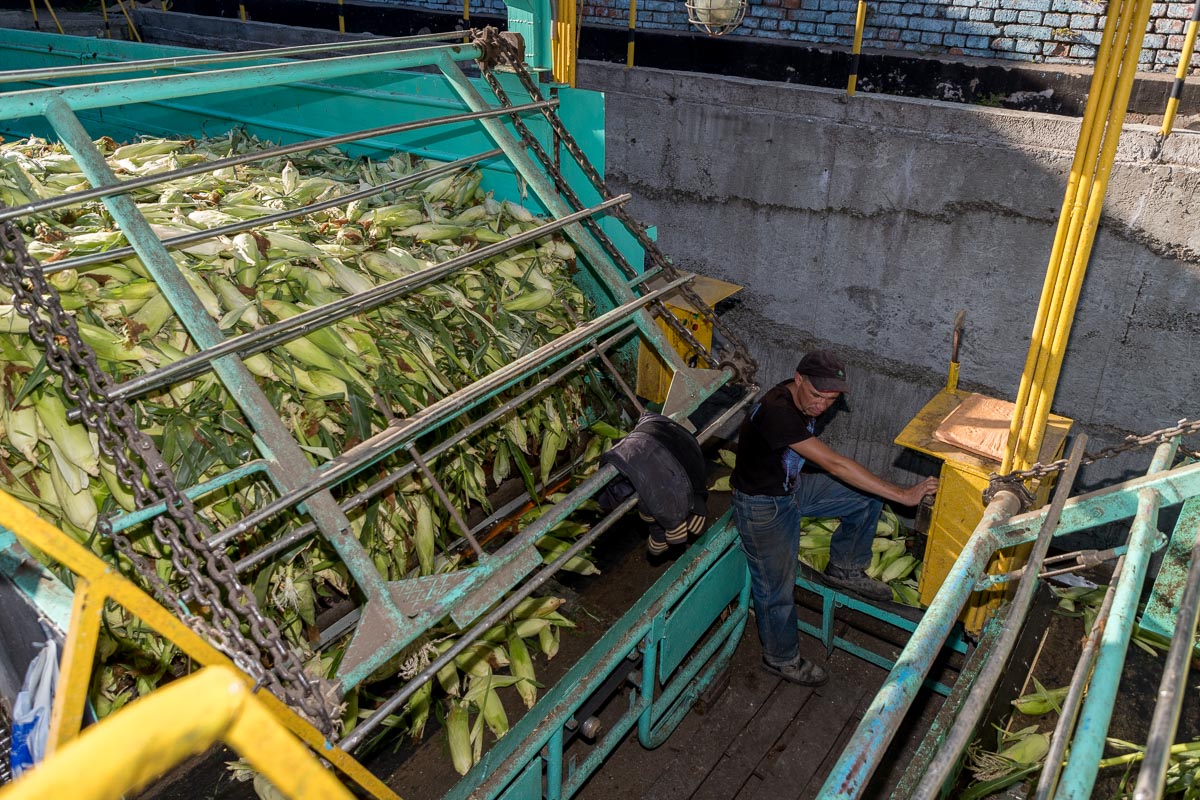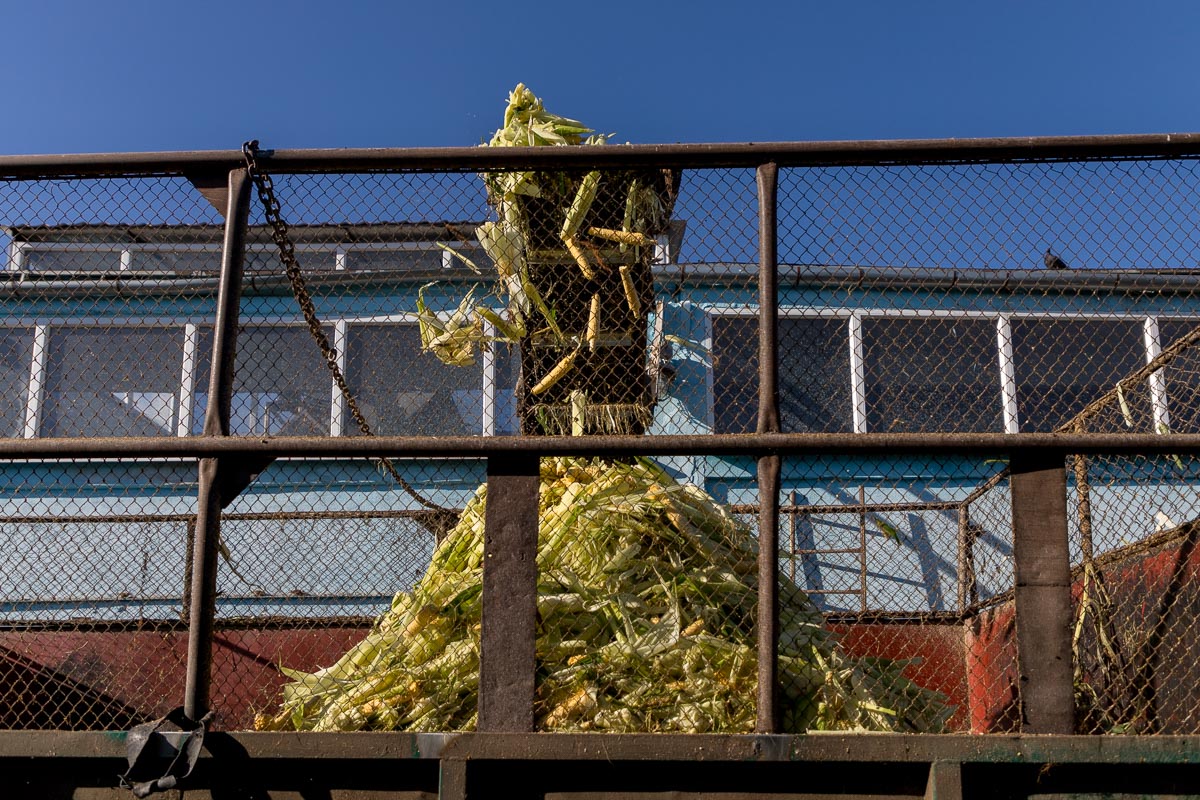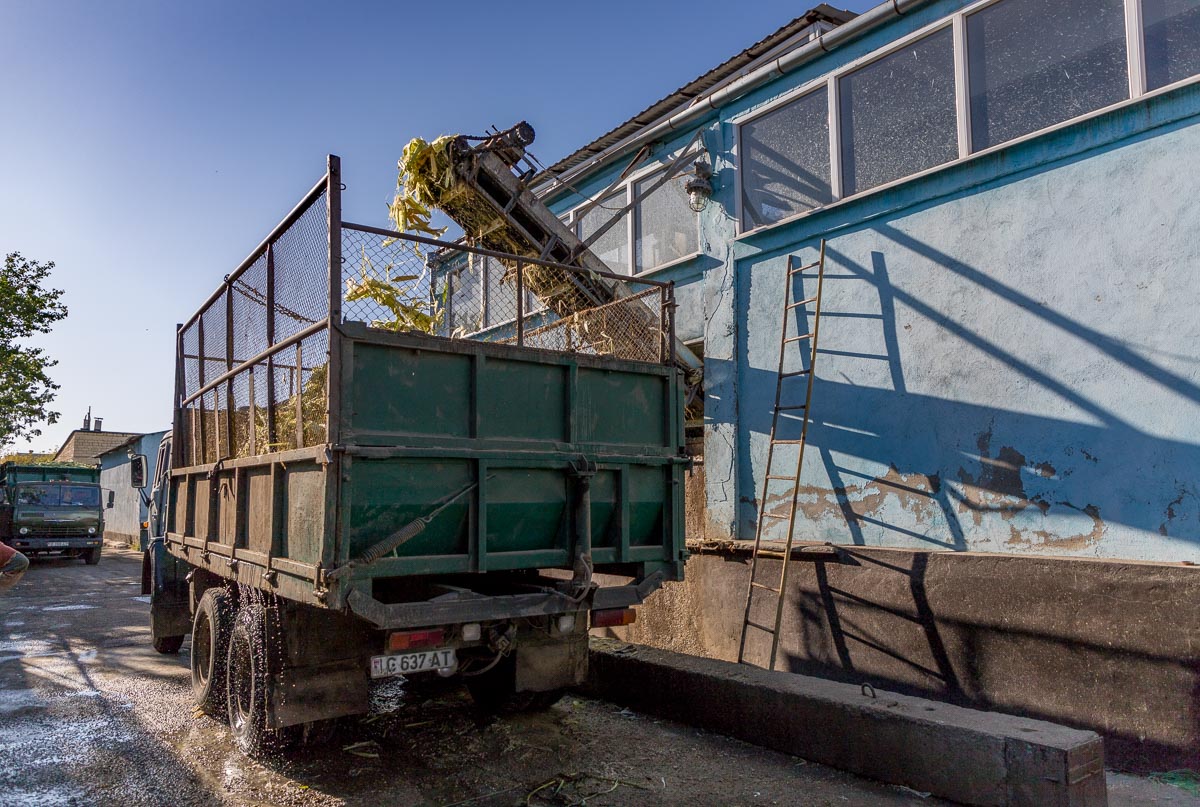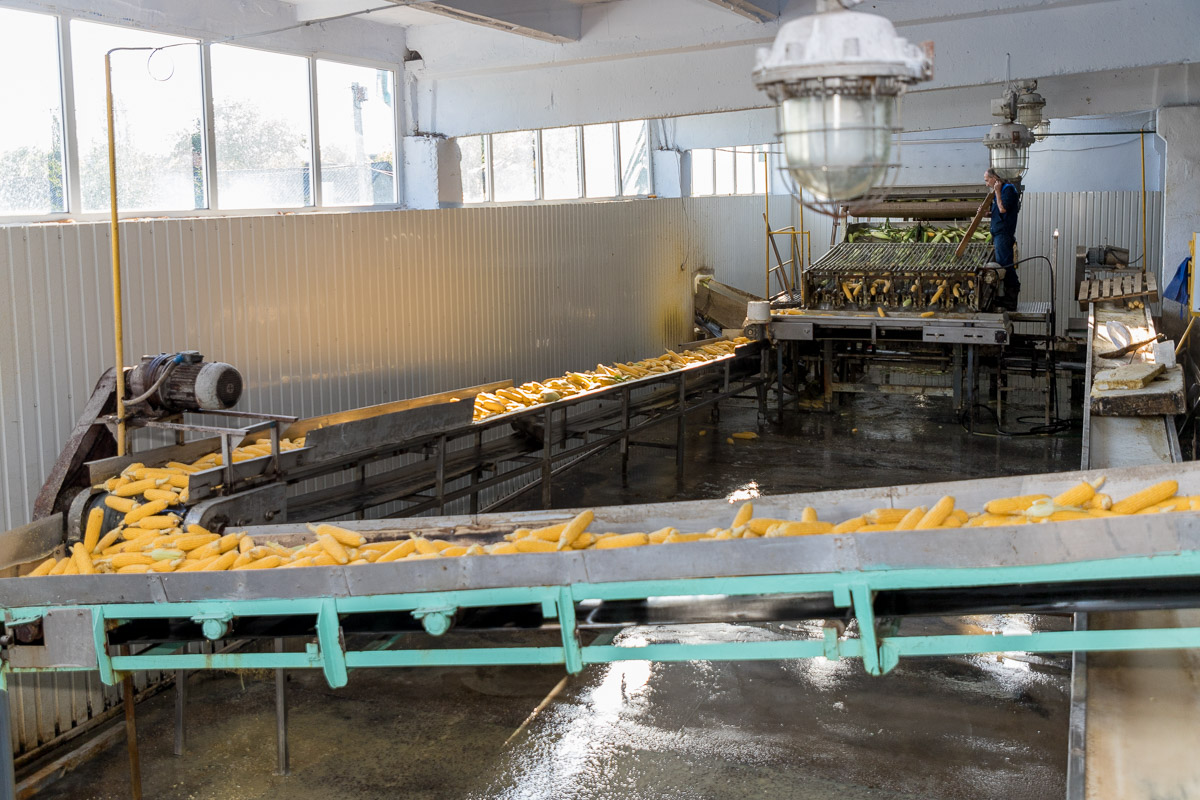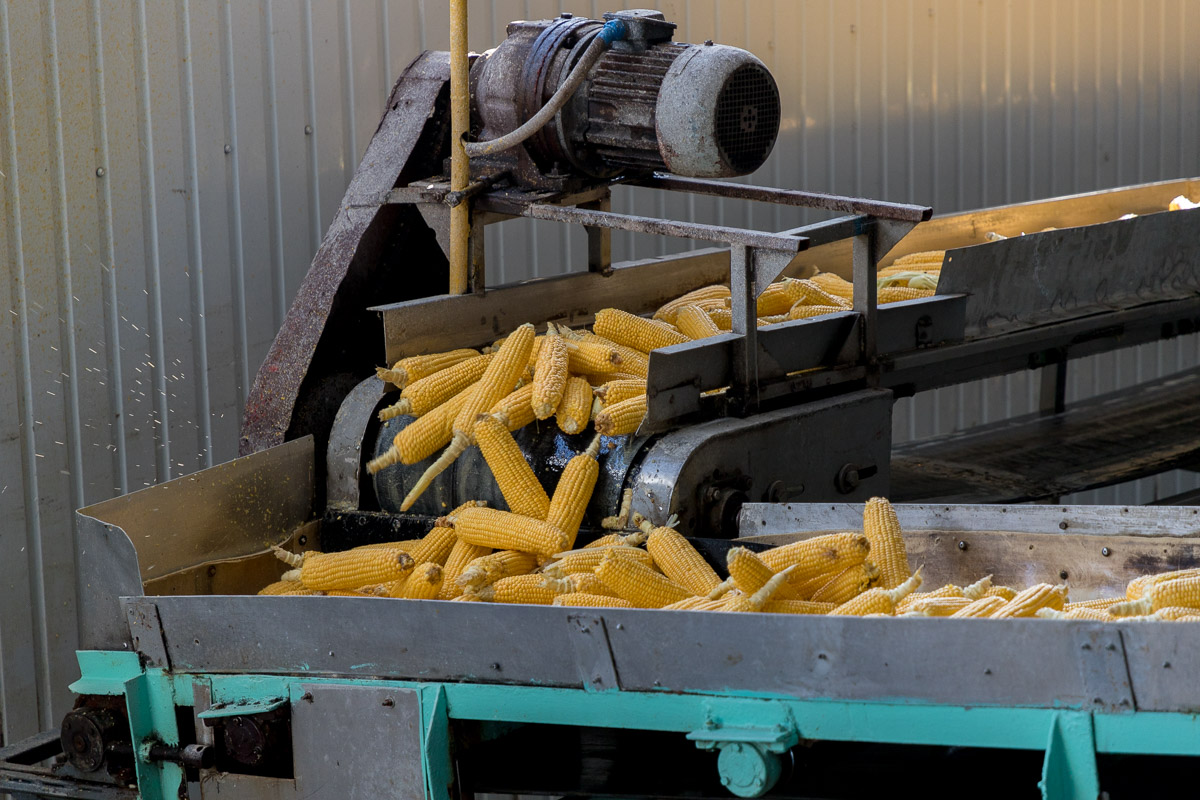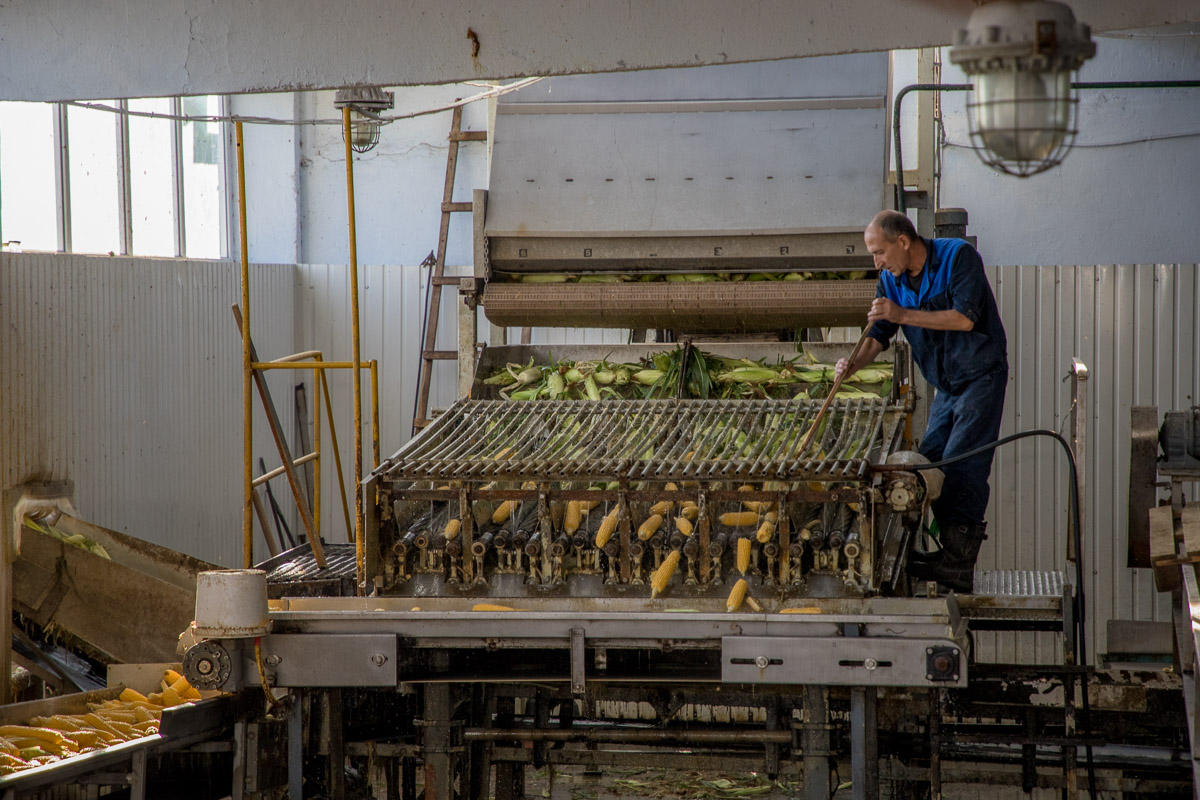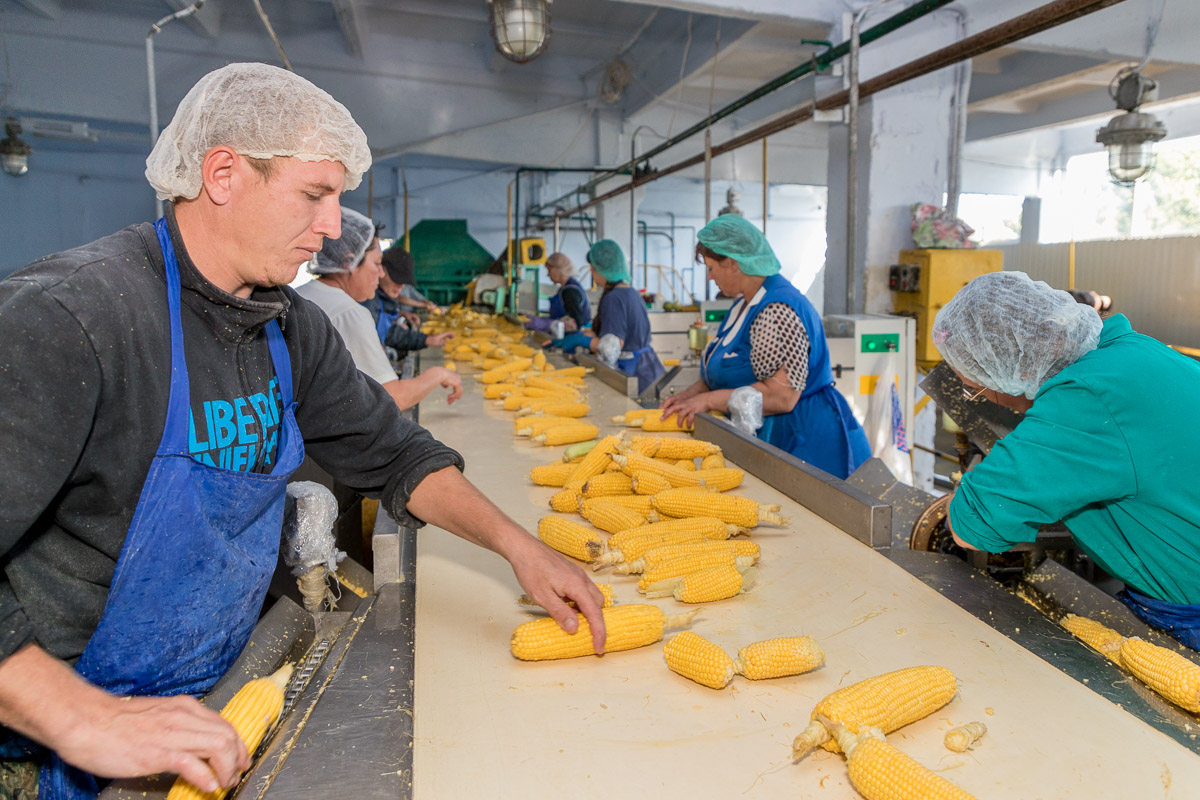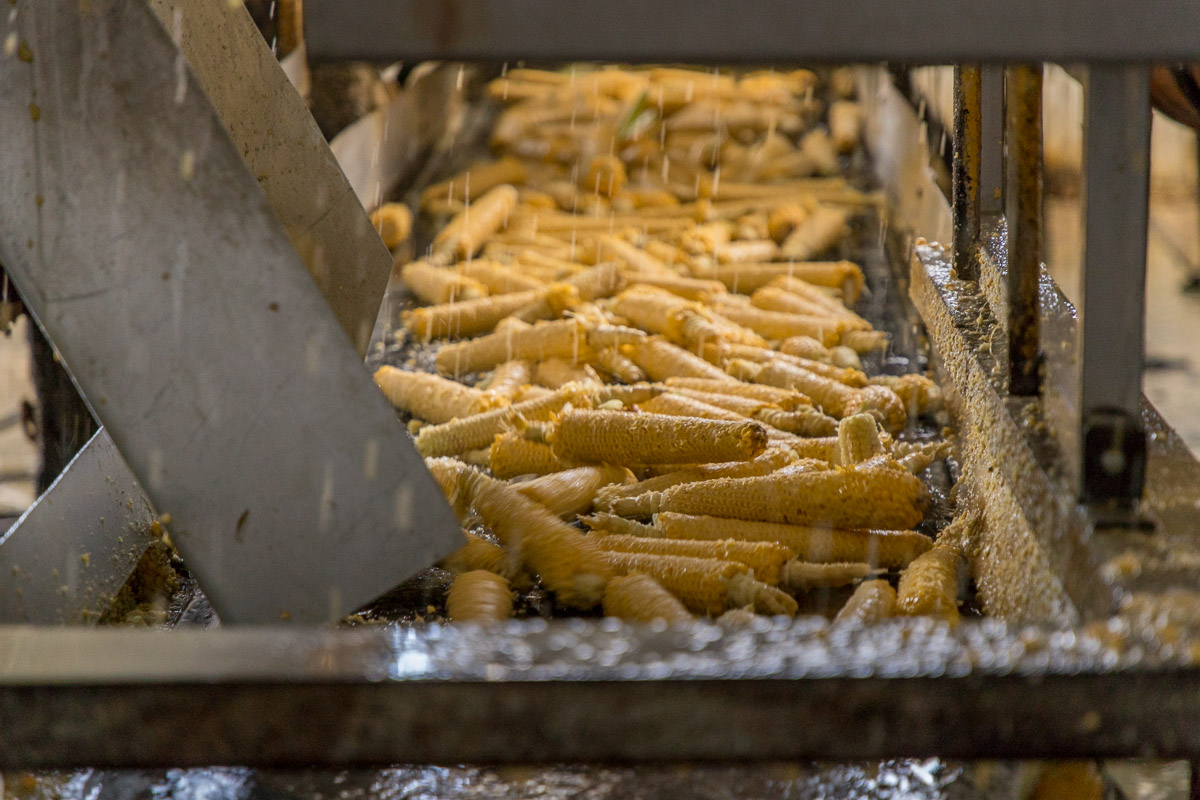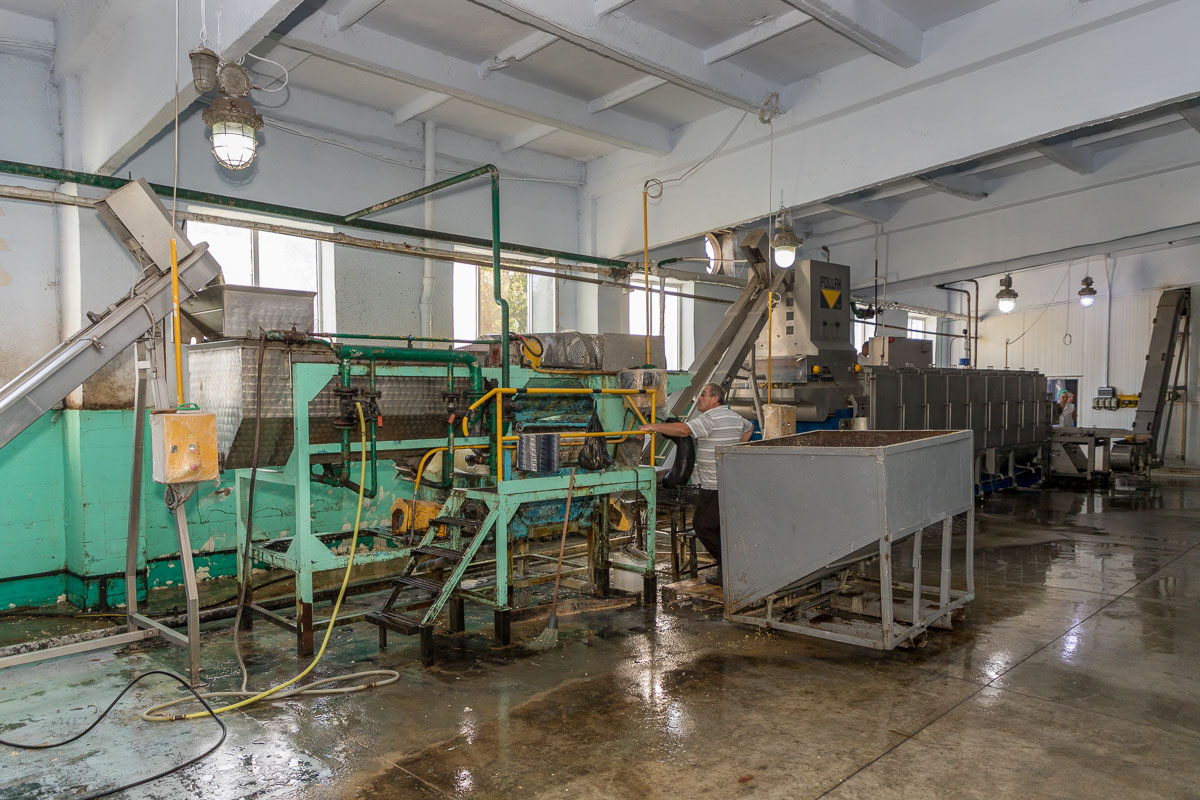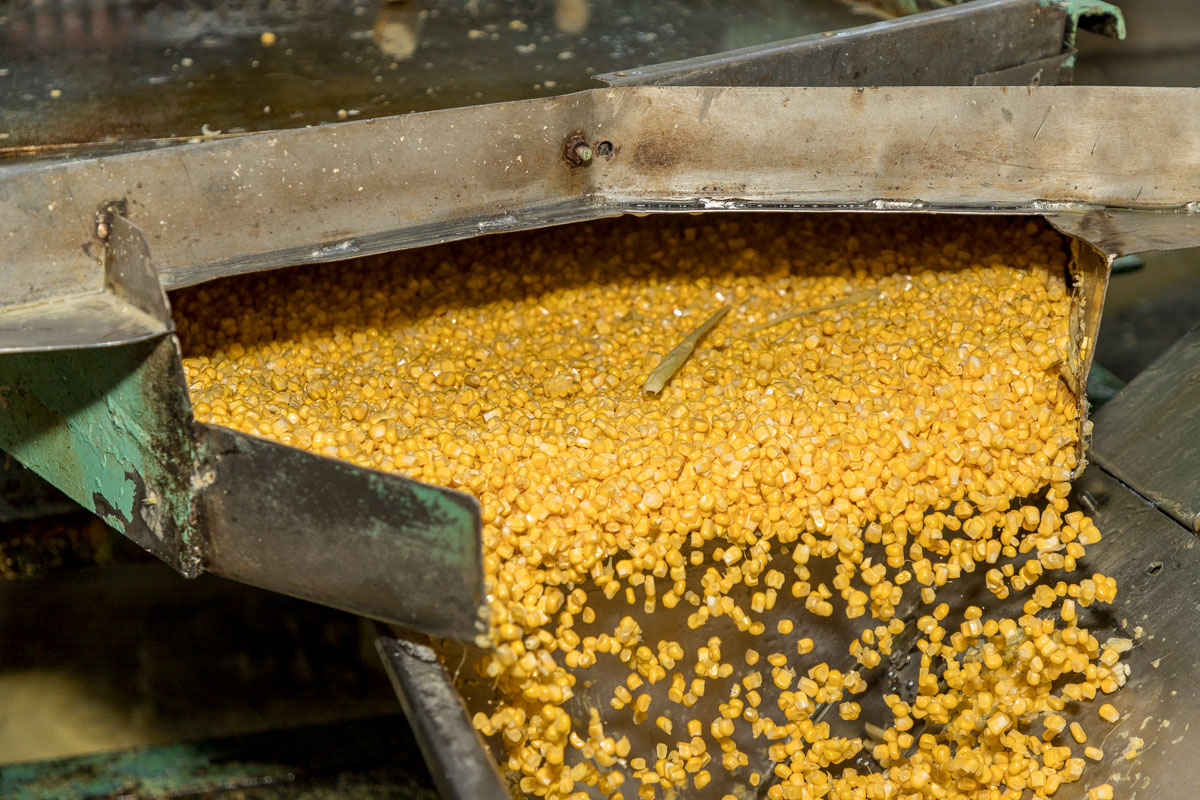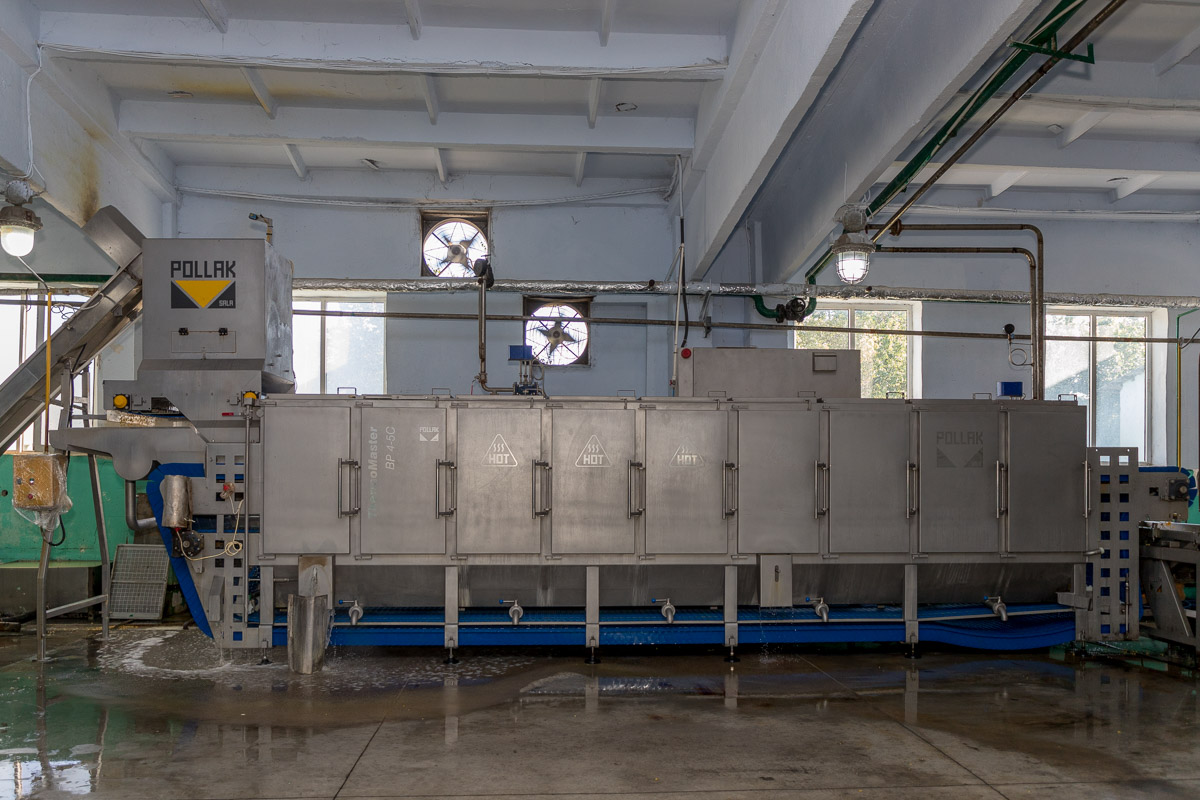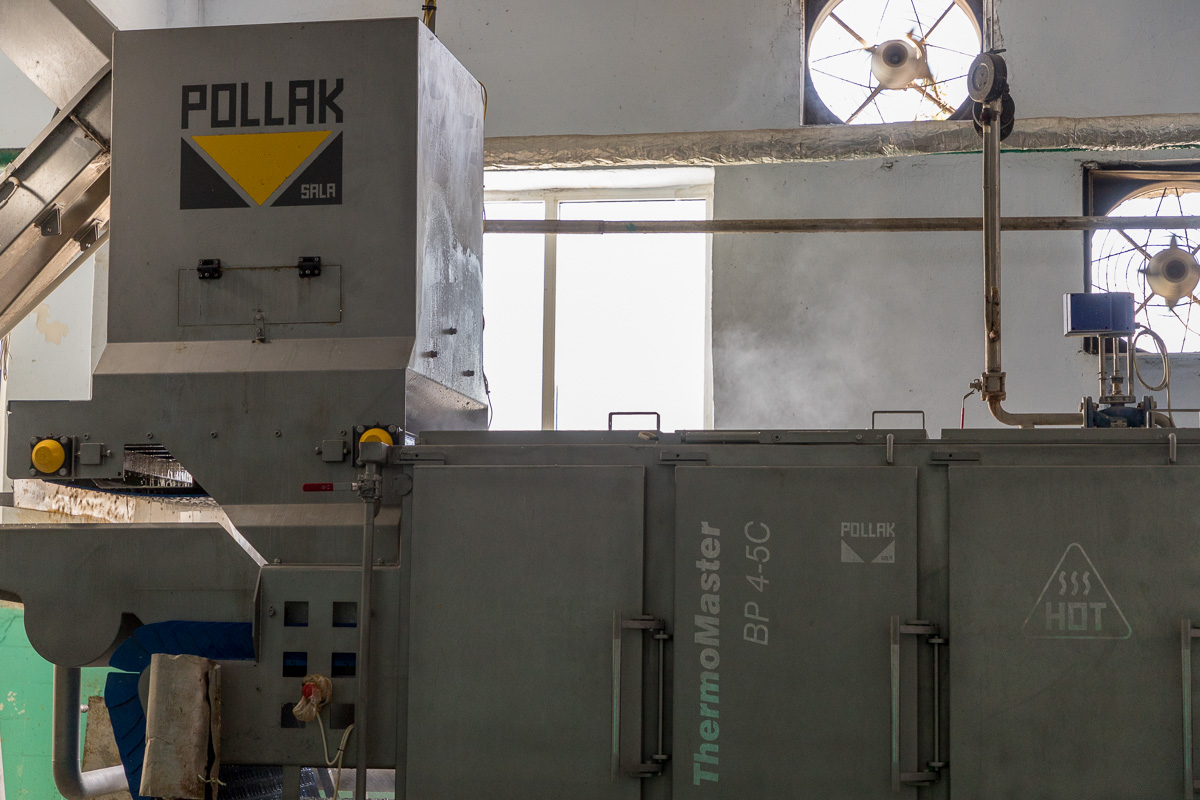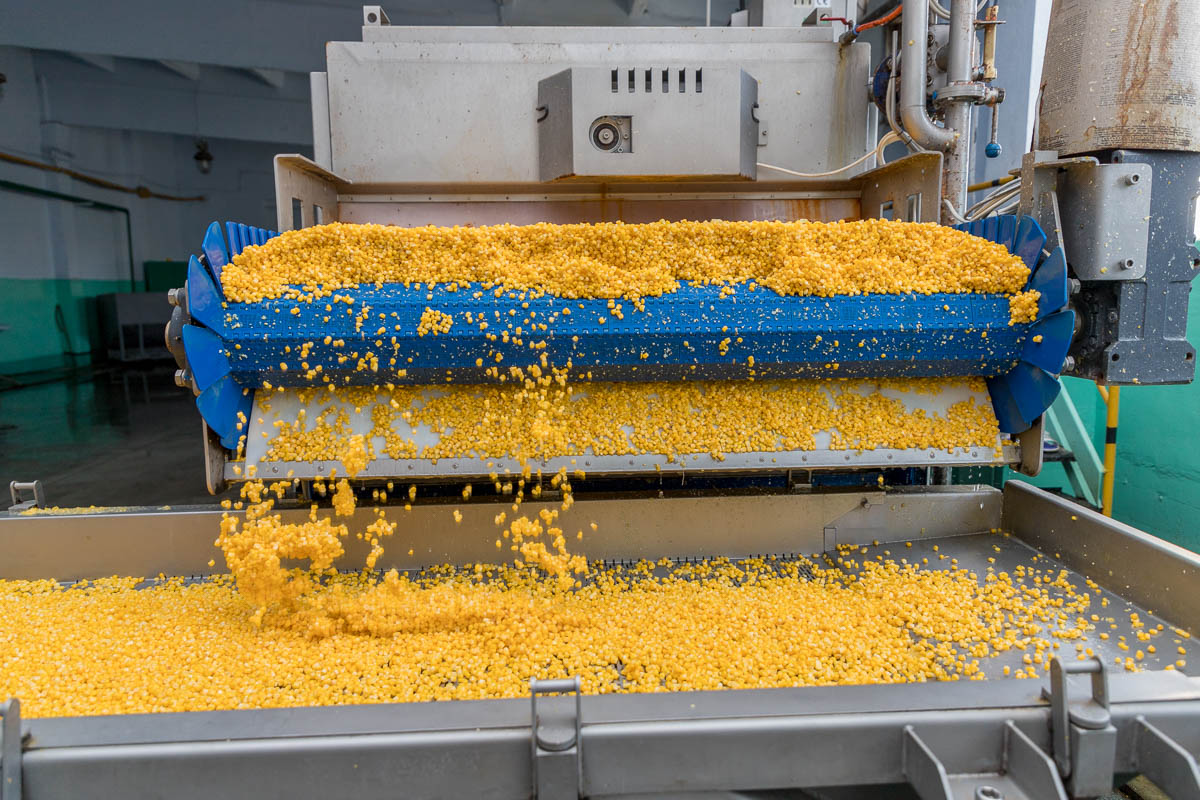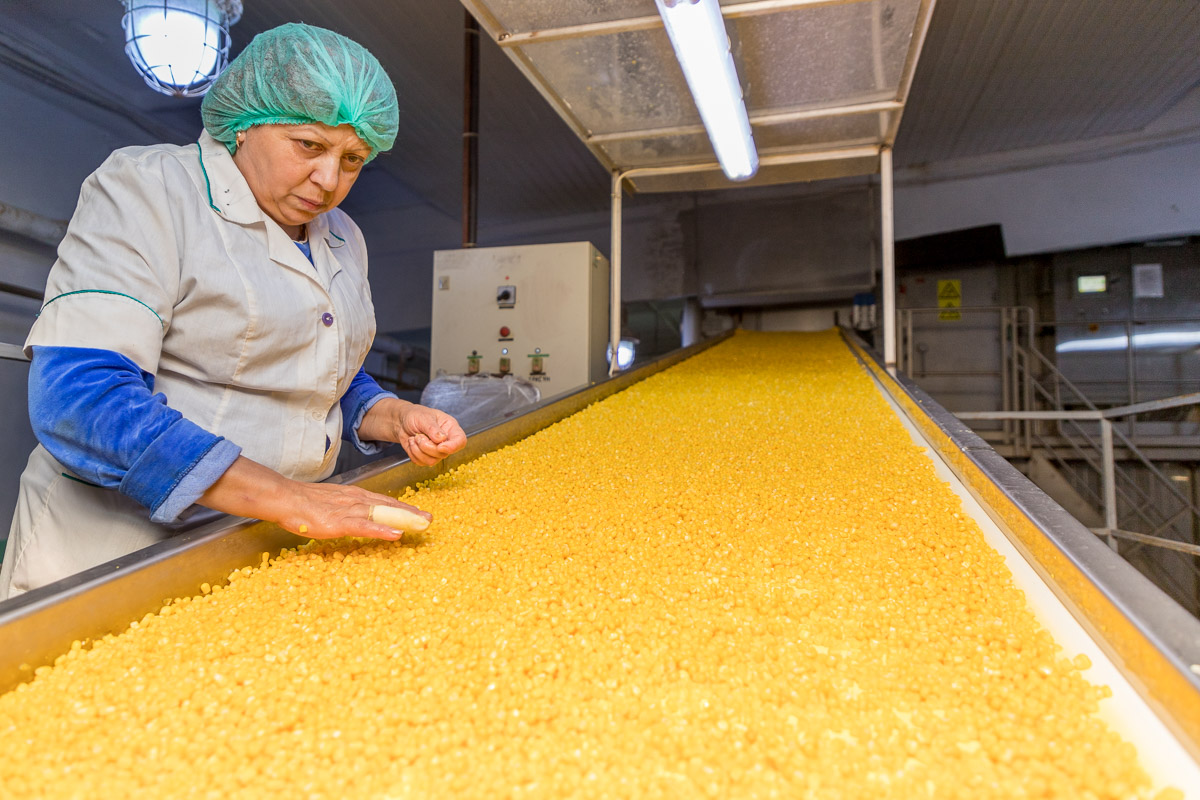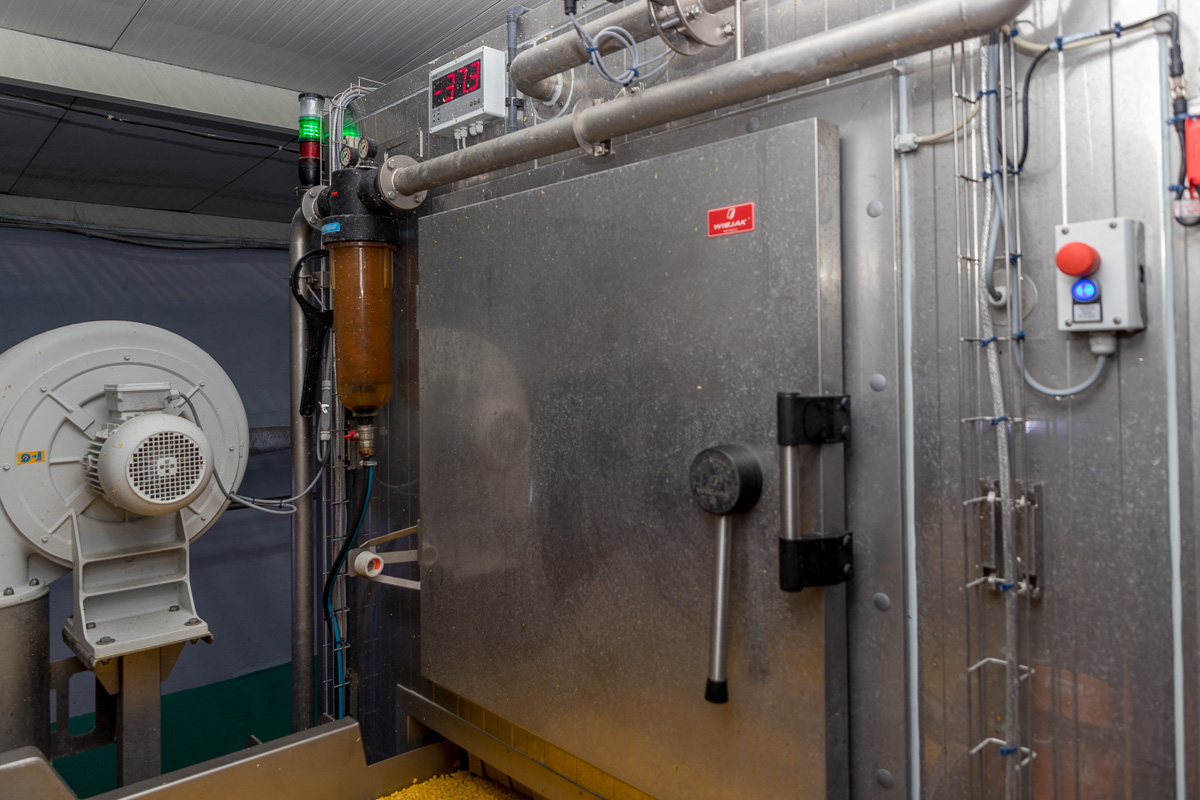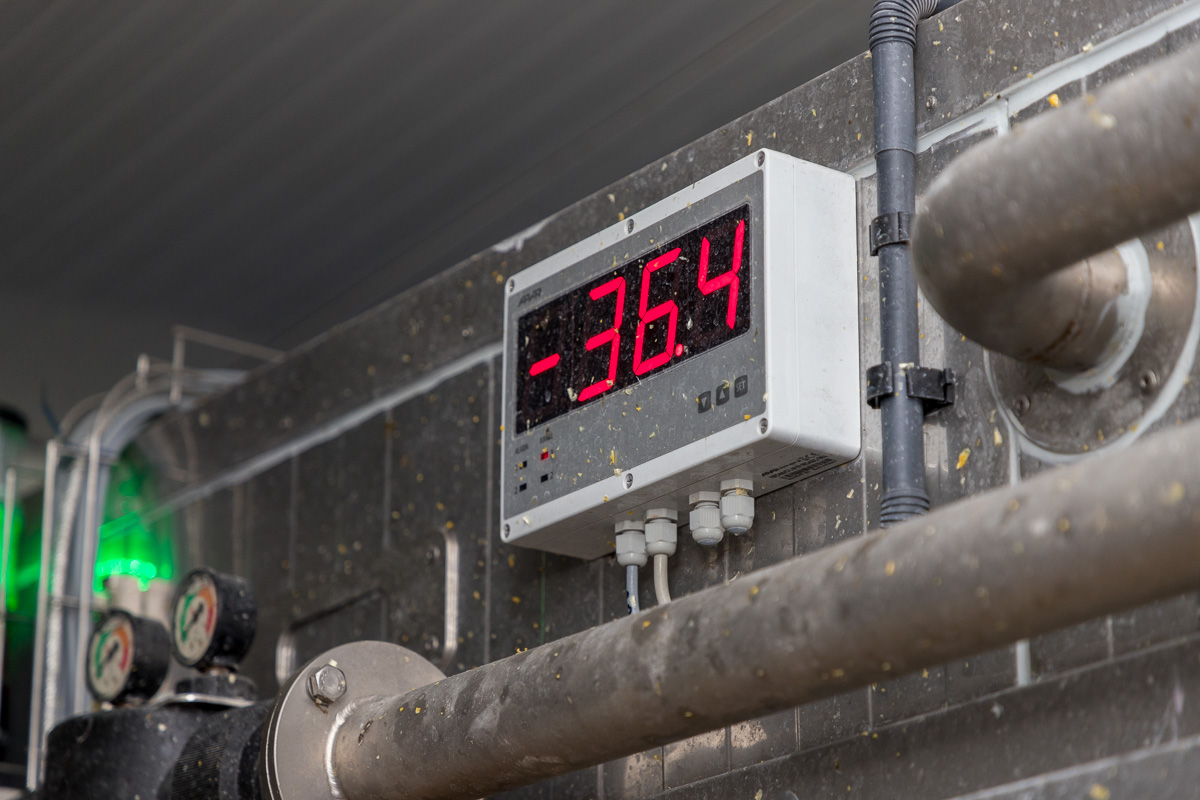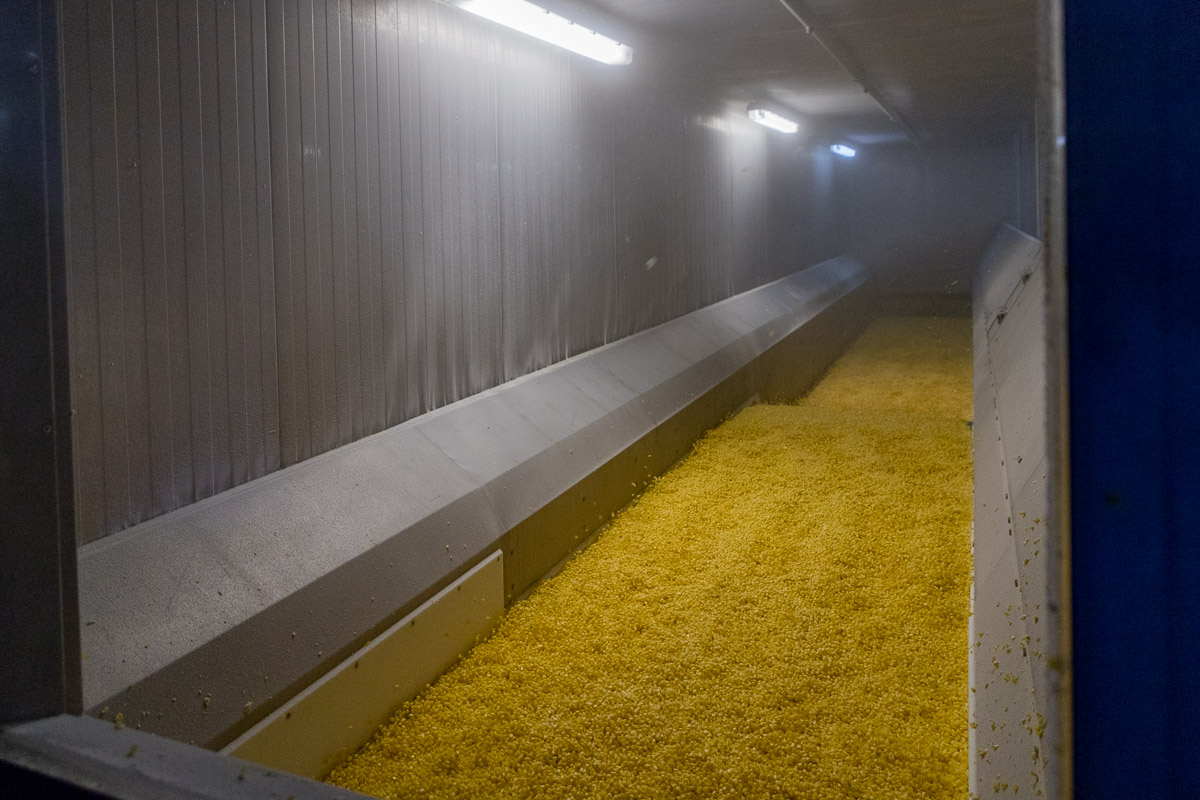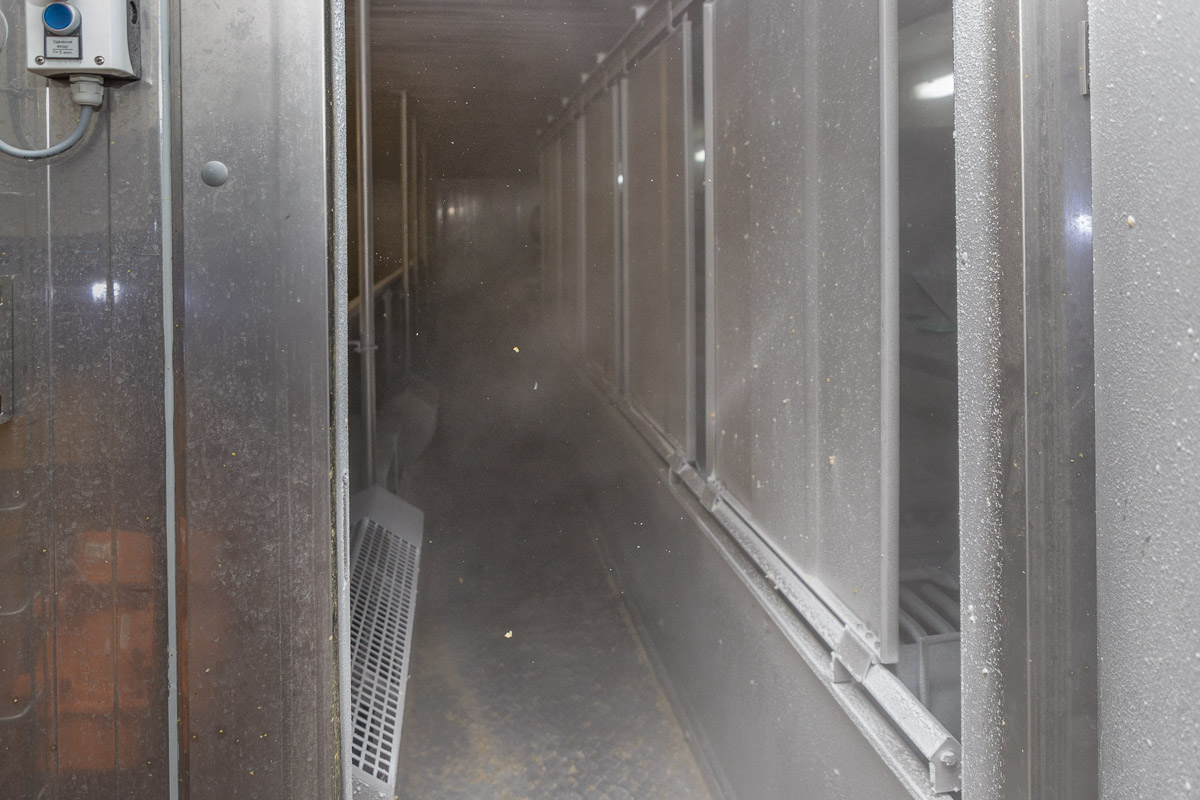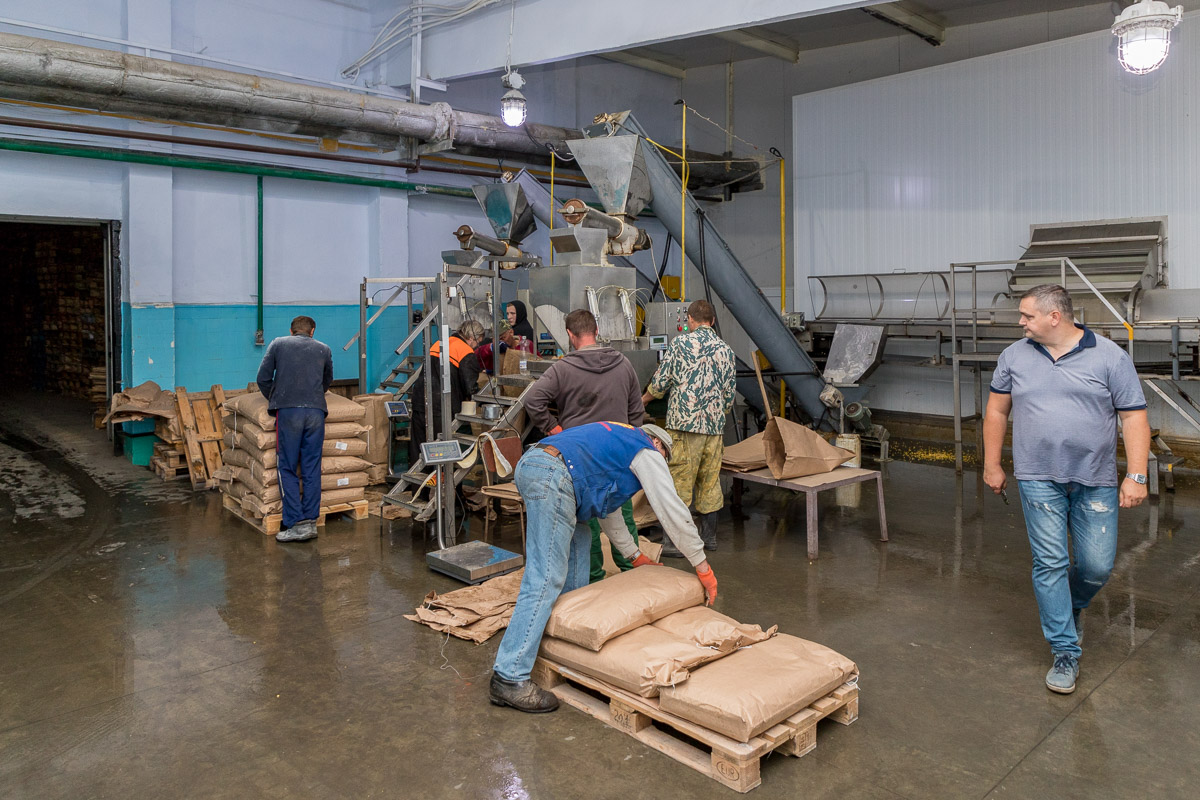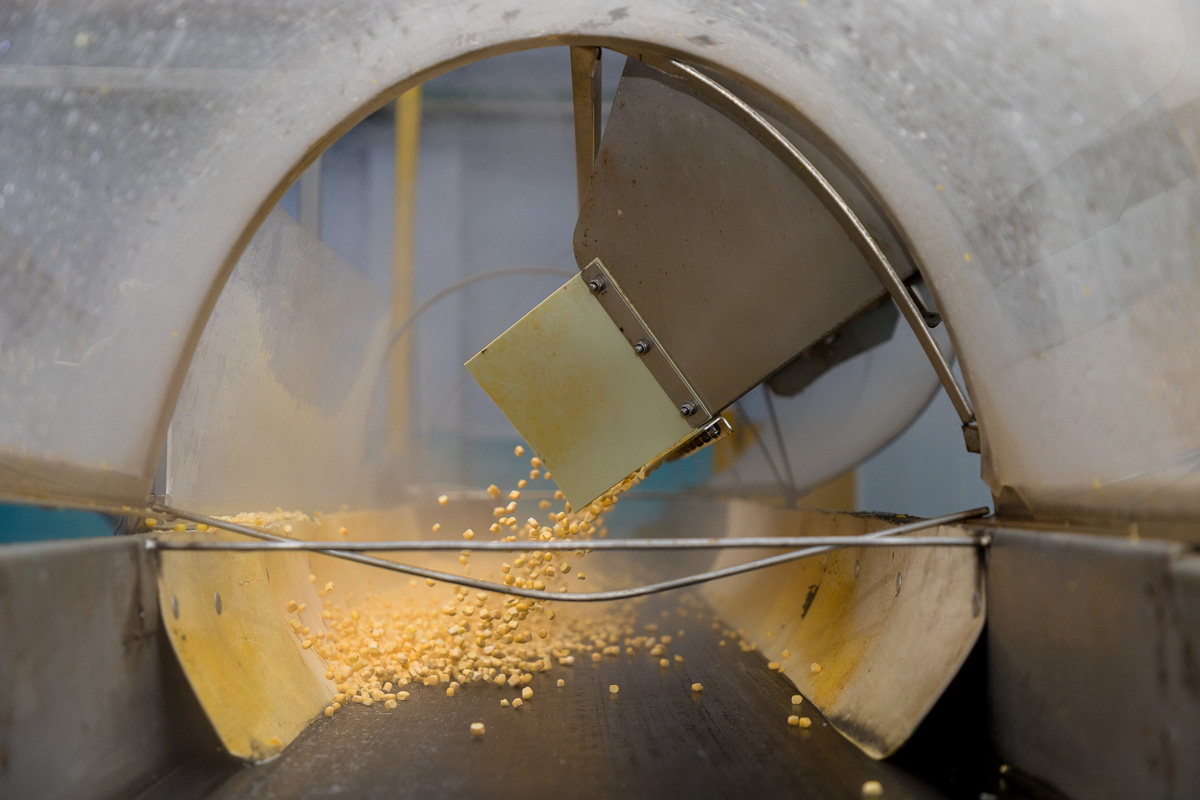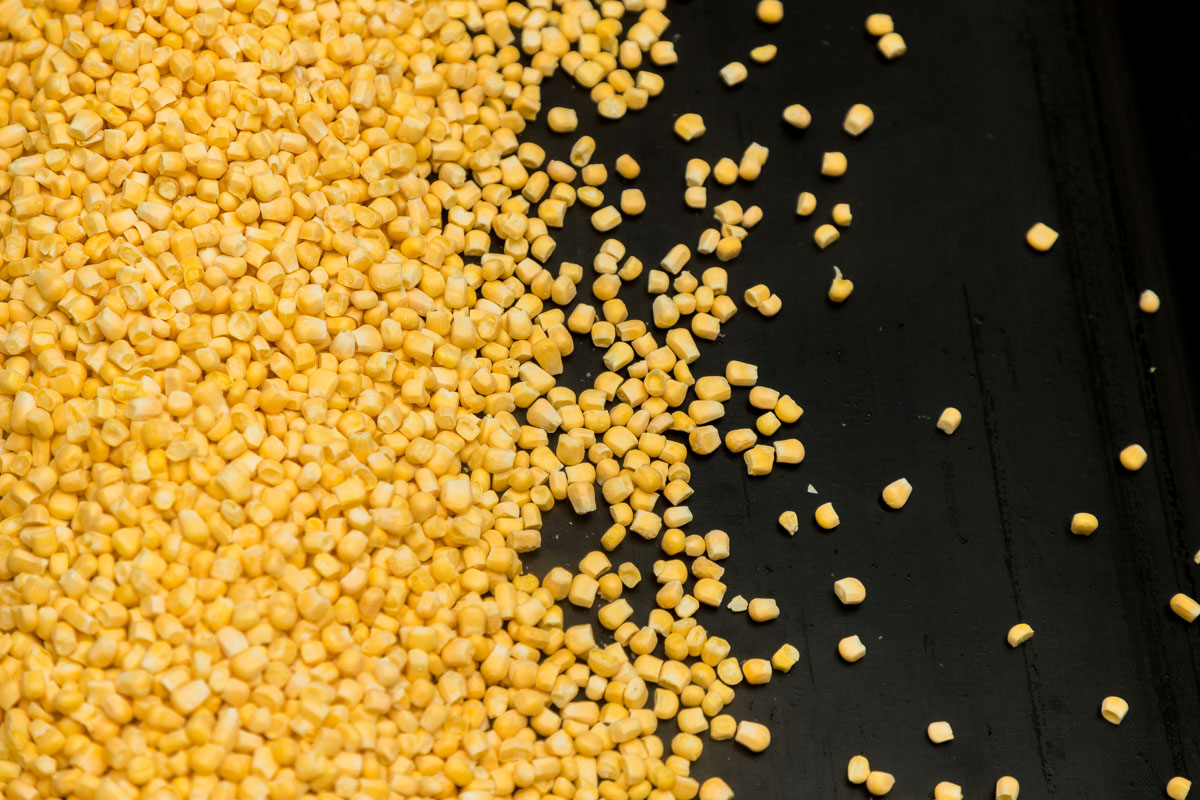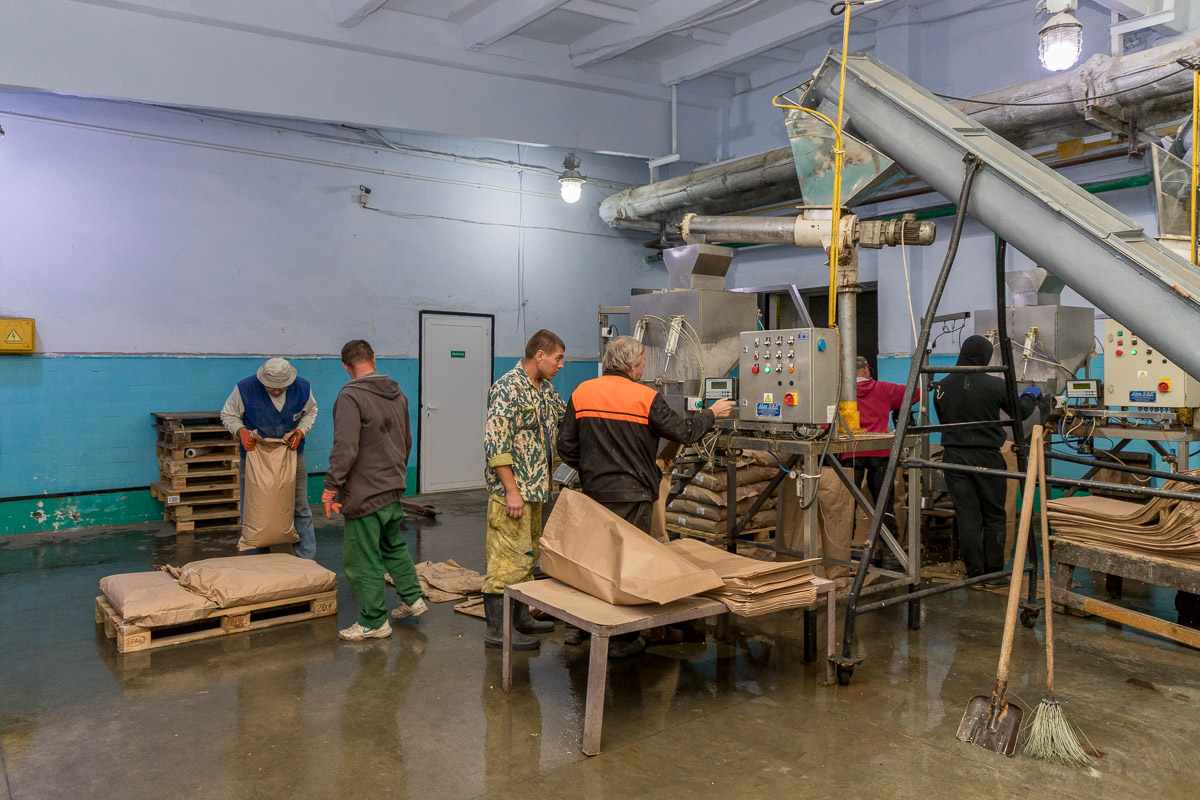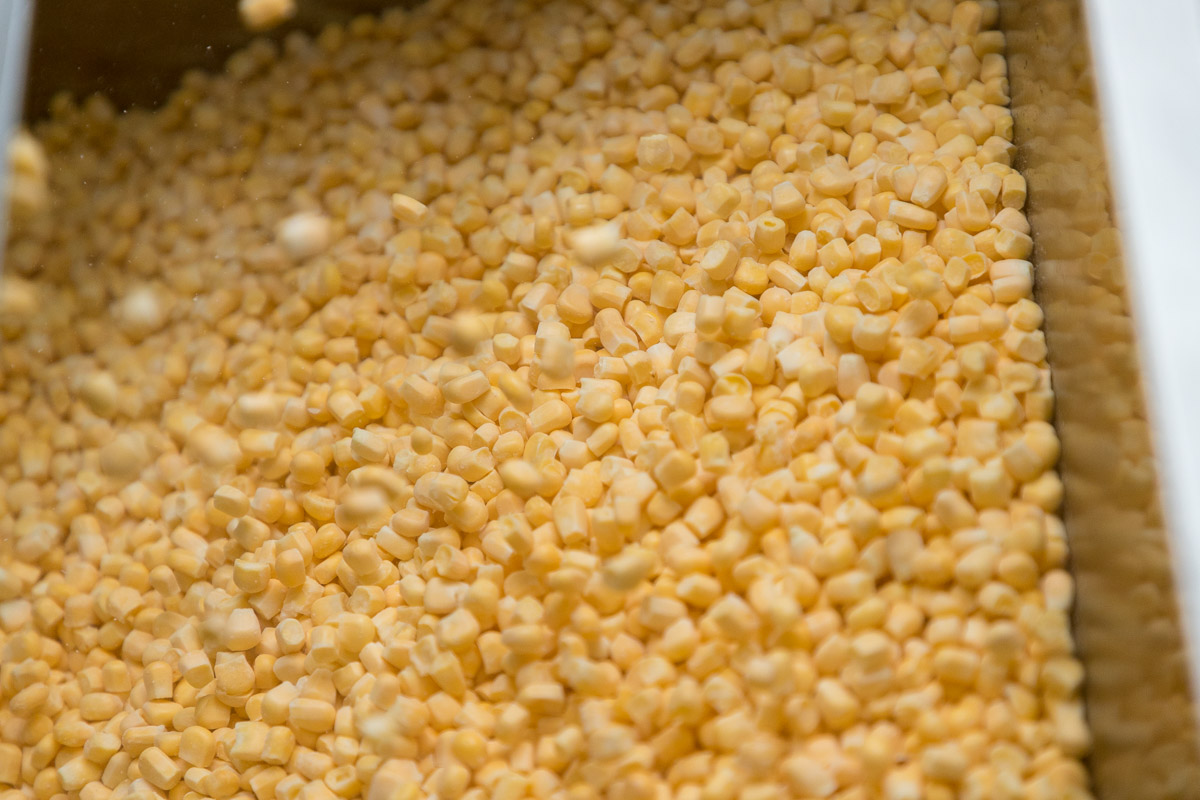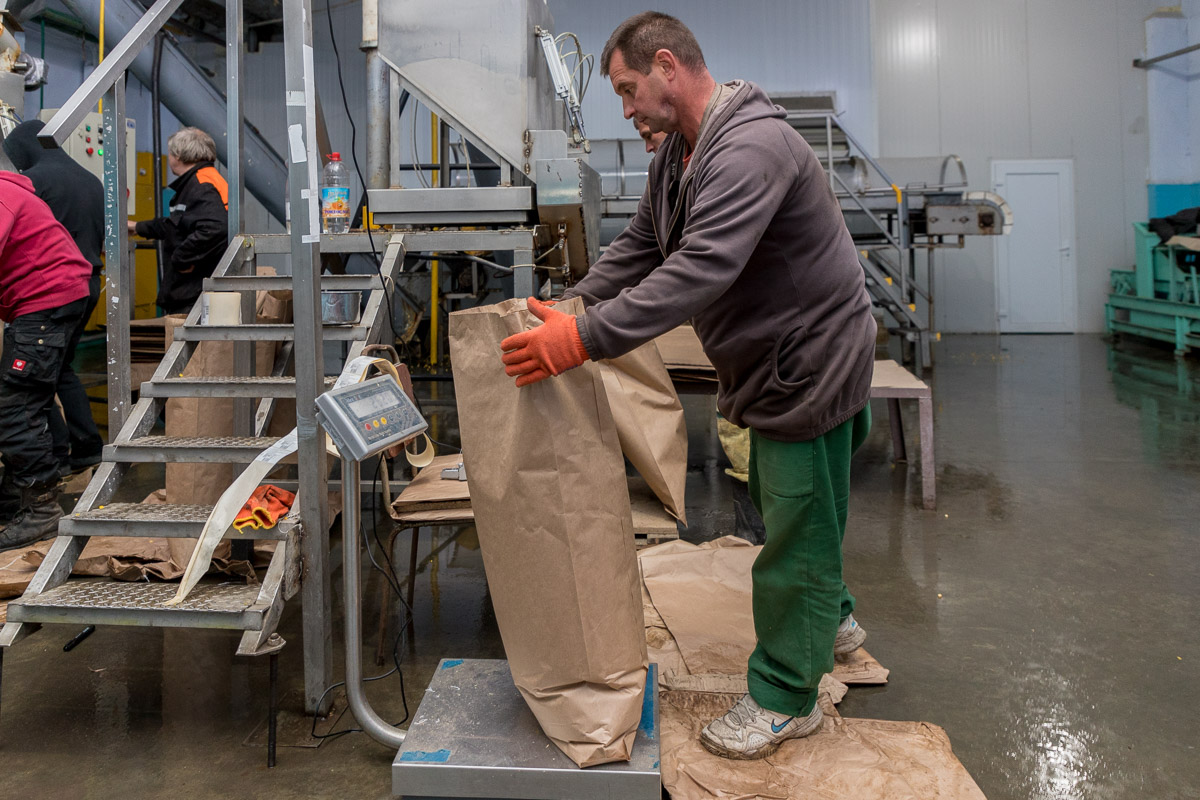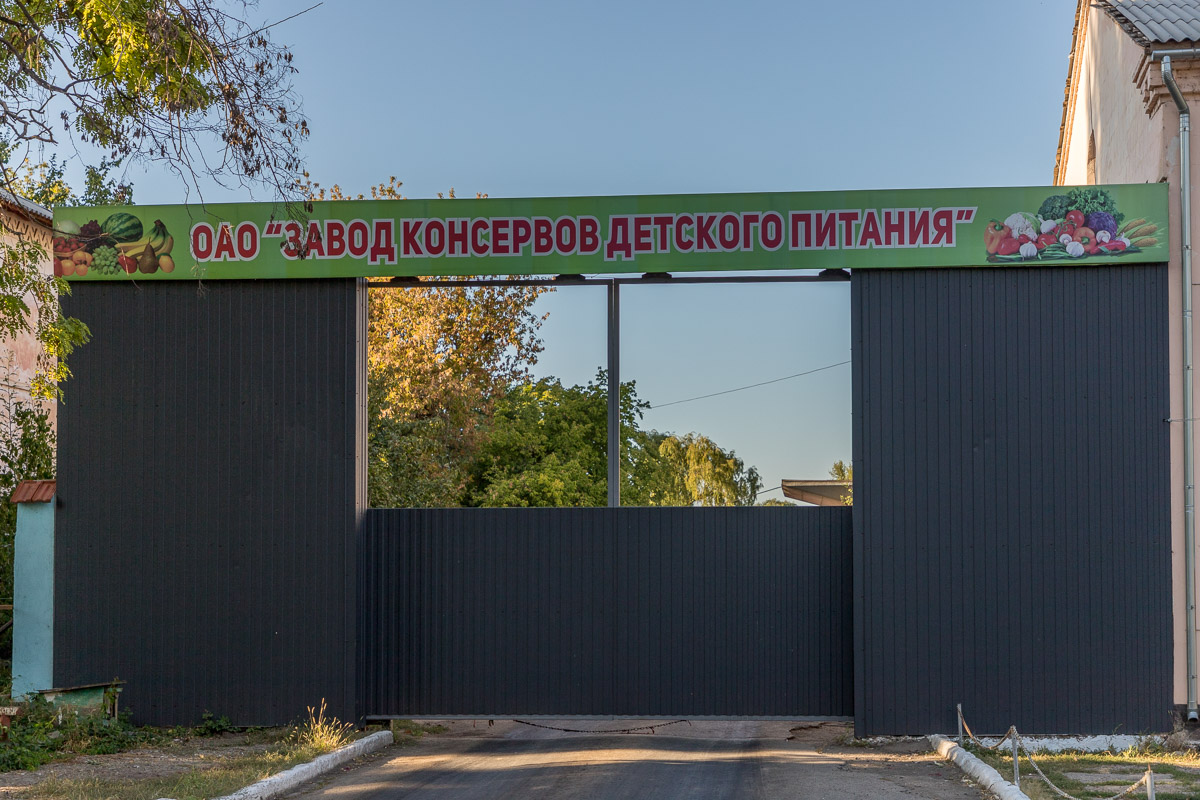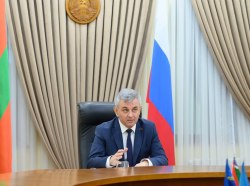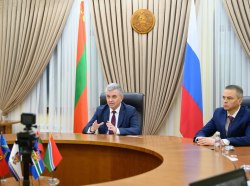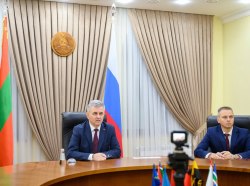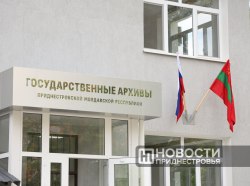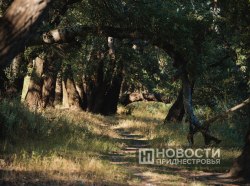Tiraspol, September, 24. /Novosti Pridnestrovya/. Almost complete preservation of all useful properties and presentation, the ability to cook dishes out of season or just eat it, enjoying the taste, aroma and color of fresh fruits. All this is about vegetables, berries and fruits processed according to the technology of shock freezing. As some manufacturers say, selling such a product means selling people a healthy nutrition.
In Pridnestrovie, two enterprises are engaged in the freezing of vegetables, fruits and berries - the Oktyabr factory in the Slobodzeya District and the Canned Baby Nutrition Factory in Tiraspol. The second one is already about 9 years old. They started with the processing of sugar corn. In order to become popular on the market, they achieved high quality, gradually increased volumes and expanded the assortment. This season they plan to freeze about 1.5 thousand tons of green peas and 5 thousand tons of corn.
The sales market is primarily the Russian Federation, as well as other CIS countries. The products are supplied as raw materials for wholesale centers, which already use it as a basis for the preparation of various mixtures and combinations. However, even in this form, our corn has already made a name, or rather, taste.
“We compete with Serbian and Hungarian manufacturers. We have quality, fast logistics, and prices. We choose the optimal level to make customers interested. Everyone who tasted corn from our plant ask: can we have it, even if it is a little more expensive? We are very sensitive to the selection of varietal composition. We are trying to ensure that the main production volume is from super-sweet varieties, and peas - from brain varieties to make it tasty,” Dmitry Kriminsky, commercial director of the Tiraspol factory of canned baby nutrition says.
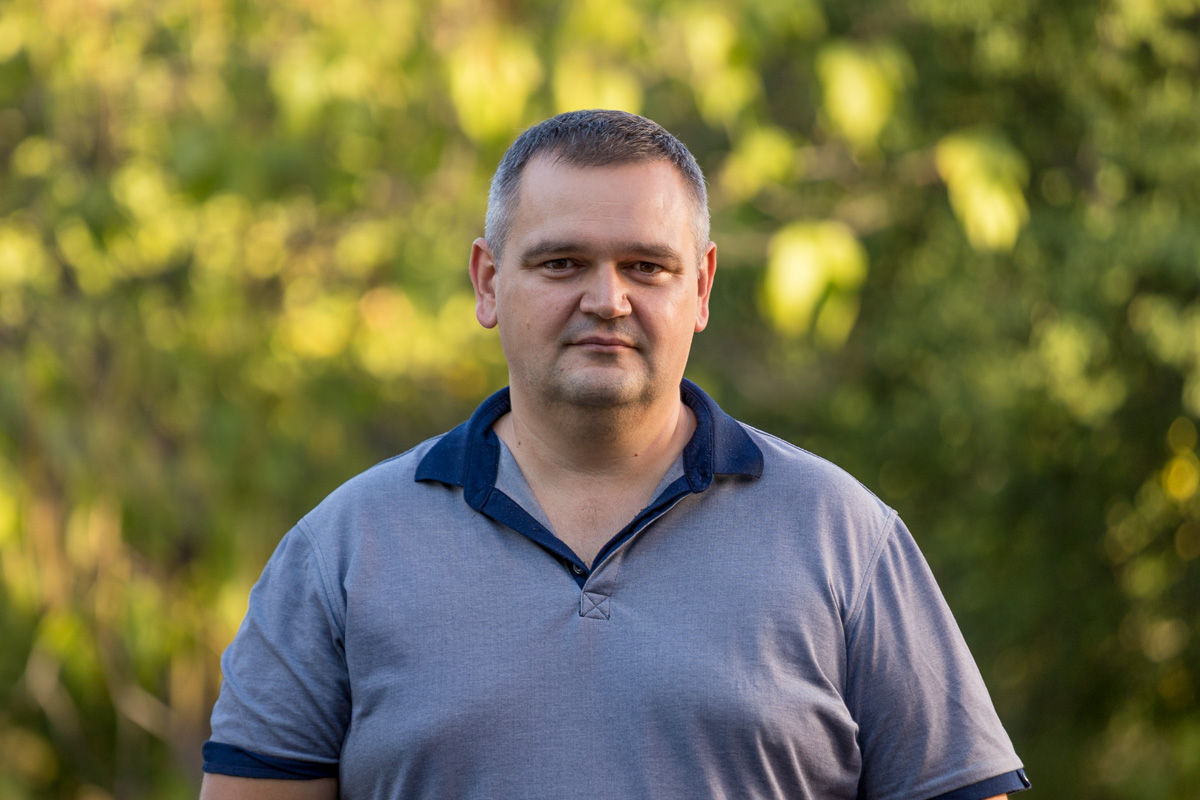
Frozen product is a product that brings additional added value. And also - this is a very promising area, because the market is constantly growing. People consume less canned product and more frozen one, on the contrary. Indeed, due to the so-called shock (i.e., very quick) freezing, the product retains all nutrients and useful properties.
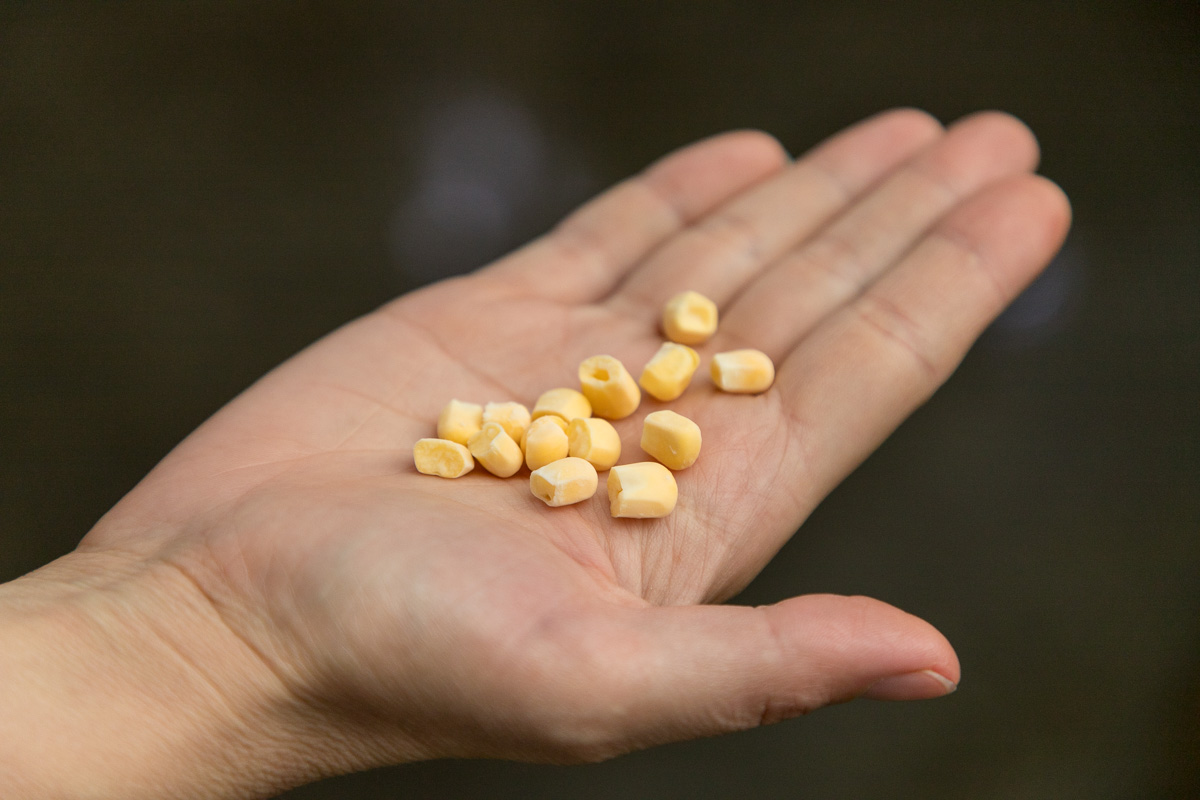
But at the same time it is also a very costly production. Large funds must be invested in both basic equipment and storage. Such products can be stored only with a large minus temperature, which must be also kept in warehouses during transportation. In order not to get negative in terms of finances, each technological operation is carefully calculated so that the grown products tonnage from their own raw materials fits into the processed volume. In order for the product to maintain its presentation and useful qualities, a maximum of 3-5 hours must elapse between the collection of raw materials on the field and the sending of finished products to the warehouse.
“Last year, we used borrowed resources through the state subsidizing program, bought a new shock freeze tunnel. This allowed us to increase productivity and achieve values that were previously unattainable. Next year we plan to increase production capacities for the reception of raw materials in order to take the equipment into use even more and increase the efficiency from investments,” a representative of the enterprise management says.
Now about 70 tons of products are frozen here per day. Work is ongoing - the cobs are being washed, sorted and frozen in three shifts.
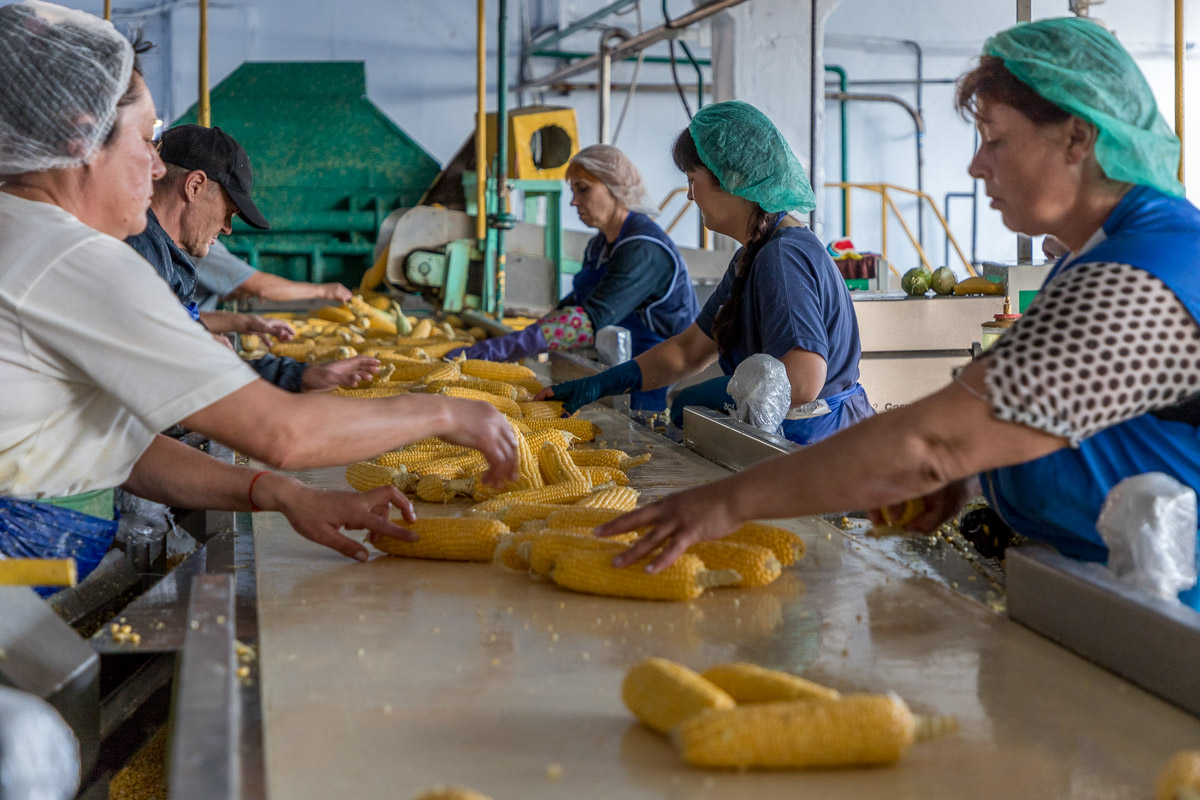
“The final results largely depend on the season, on what the weather was like. This year is extremely difficult, in the Slobodzeya District there is a drought. We incur additional costs due to increased watering. No matter how pathetic it sounds, there is a struggle for the crop, for its volume, and also so that it does not lose in quality. According to the results of harvesting, production volumes for peas turned out to be less than planned, for corn - it will become clear later,” Dmitry Kriminsky said.
So far, green peas and corn remain the most popular for freezing in Pridnestrovie. As noted in the Ministry of Agriculture, there are several reasons for this.
“Firstly, the possibility of mechanizing the processes of cultivation of these crops. Modern technologies allow us to mechanize 100% of harvesting green peas and sweet corn. Unfortunately, it is impossible to mechanize the harvesting of other types of products. Today there are difficulties with berries, stone fruits, broccoli and cauliflower. Therefore, today, enterprises are developing primarily these two areas. Secondly, the customer’s requirements for the assortment, volume and quality of frozen vegetables, fruits and berries are taken into account, and in the future development of other areas is also possible,” Oleg Diligul, First Deputy Minister of Agriculture and Natural Resources says.
To improve production efficiency, the plant added other vegetables to the assortment. Last year it was broccoli, a trial batch of 70 tons was sold quickly, they plan to do more in this, and also to freeze a batch of cauliflower. This will extend the processing season until the end of November. Frozen products account for 95% of the total production volume of the plant; it is exported hundred per cent. The remaining share is conservation for the domestic market.
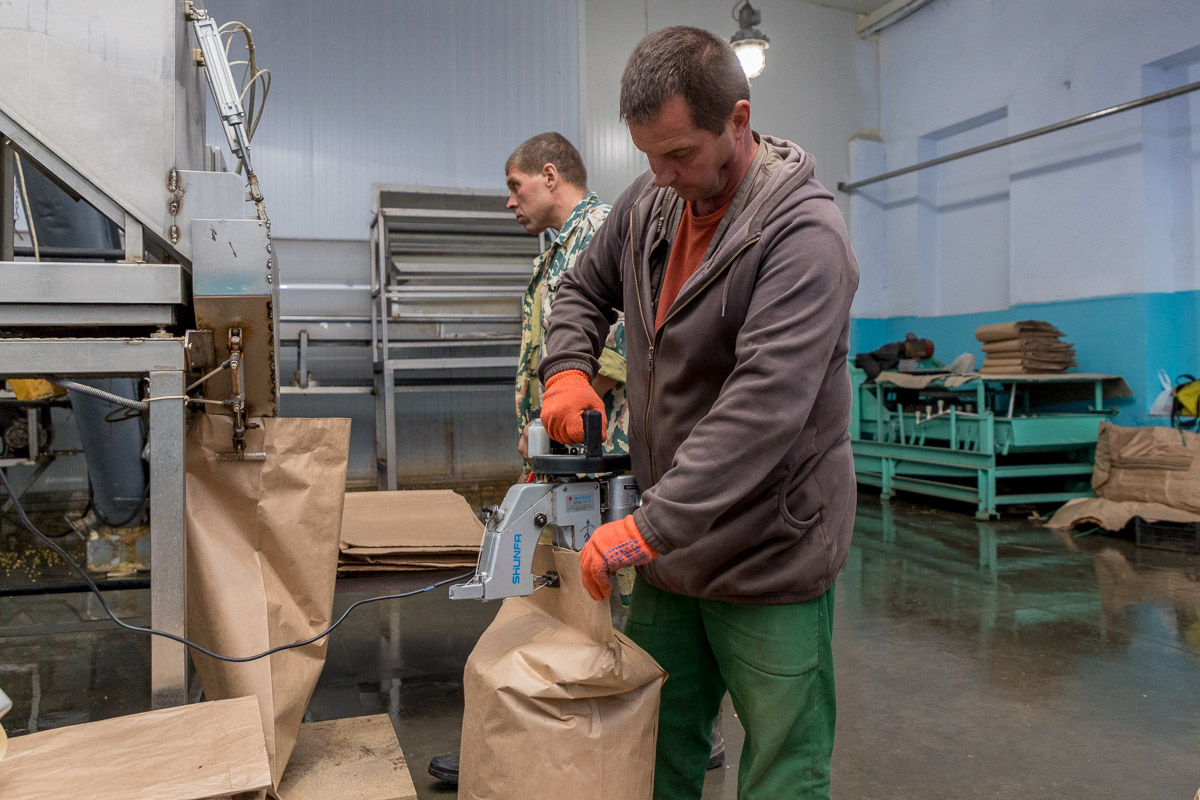
“Until 2000, our frozen products had quite an exotic way of processing, after 2005-2006 both volumes and assortment began to increase. Now Pridnestrovian enterprises process from 2 to 5 thousand tons of green peas and from 10 to 20 thousand tons of sweet corn different years. This is a rather expensive and high-tech, but also very promising area, so it is necessary to increase volumes gradually,” the Ministry of Agriculture and Natural Resources summed up.

